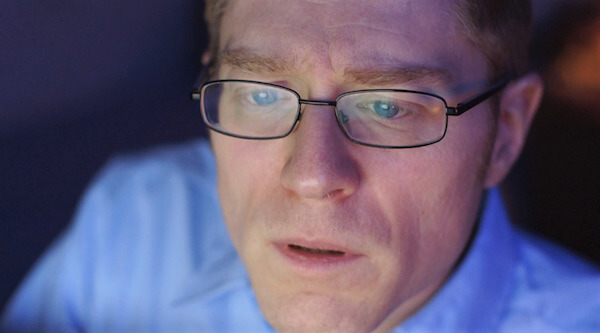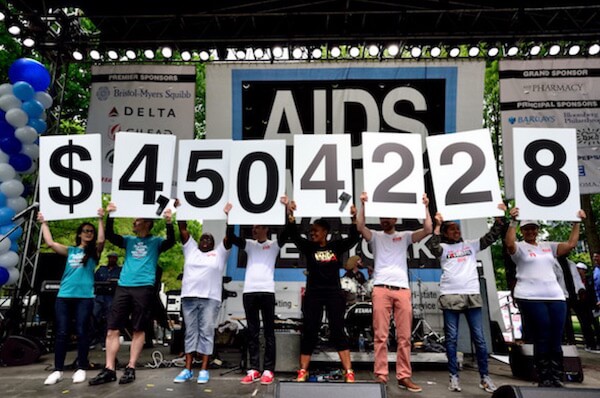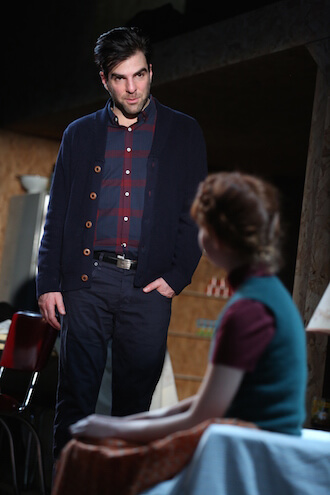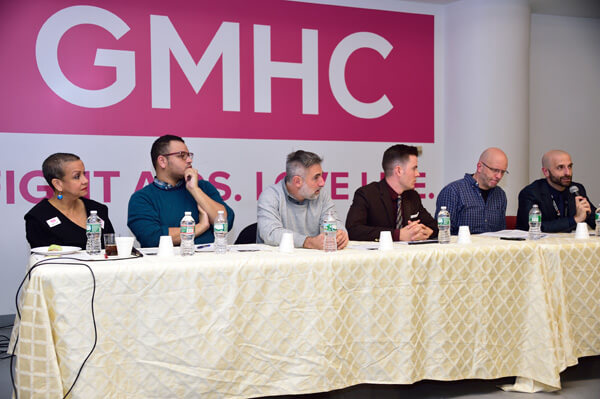Matt Bomer and Jim Parsons in Joe Mantello's Broadway debut revival of Mart Crowley's 1968 “The Boys in the Band.” | JOAN MARCUS
When “The Boys in the Band,” the comic drama about a hellish birthday party full of snarky, self-loathing homosexuals, premiered in a fringy venue in 1968, it was slated to run for only fie days. But the frank, nonjudgmental portrayal of this maligned minority, never before seen onstage, caused such a sensation that it transferred to Off-Broadway where it ran for more than 1,000 performances.
Over the decades, Mart Crowley’s little play that could has been revived in New York only a couple of times, most recently in 2010 in a modest, immersive production set in a Chelsea loft, where actors would occasionally spill their drinks on audience members crammed into corners of the living room. Many felt the unflinching, unflattering gay stereotypes were just too stale to revisit, and generally the work fell out of favor.
But now, beyond anyone’s wildest dreams, the play is getting a splashy first-ever revival on Broadway, powered by openly gay heavyweights like Ryan Murphy (producer) and Joe Mantello (director) and a raft of out-and-proud Hollywood stars. Aside from some judicious cutting, which compresses the play from two acts to one, the text has not been altered from the original. Mantello is bent on mining the comic potential of the material and he succeeds, though sometimes at the expense of the pathos.
Splashy, star-studded revival of groundbreaking gay classic still has bite and wit
Make no mistake, this iteration does not shy away from the garish gay stereotypes and, naturally, the dialogue is flecked with antiquated slang, as challenging as it is charming. The plot has more than its share of formulaic contrivances.
Yet any rough spots inherent in the 50-year-old text are, by and large, glossed over by the top-notch staging. David Zinn’s dazzling set of an Upper East Side duplex apartment is dominated by brass, glass, and burgundy velvet furniture, and is given an otherworldly sheen by Hugh Vanstone’s moody lighting.
And then there are the performances, each one more remarkable than the next. The somewhat motley ensemble is led by the superb Jim Parsons, who embodies the unsettled host, Michael, a struggling writer and a lapsed Catholic, with a manic-depressive insouciance that hardens into disdain. Sure, the portrayal is a riff on his neurotic Sheldon on “The Big Bang Theory,” and it effectively amps up the level of comedy in the proceedings.
Even more of a hoot is Robin de Jesús as Emory (“La Cage aux Folles”), the clownish “pansy” who brings homemade lasagna to the party and emerges as the Mother Hen of the group. In an alternately hilarious and heart-wrenching turn, de Jesús locates Emory’s pain, fear, and dignity just below the surface.
Threatening to steal the show is Zachary Quinto as birthday boy Harold, a self-proclaimed “ugly, pockmarked Jew fairy” who spends hours in front of the mirror fixing his face before he can bear to leave his apartment. His exceedingly snide Harold is mannered in every fiber of his being, suggesting a tightly wound bomb on the verge of exploding. Wearing a paisley silk scarf and coral-hued blazer, he’s 32 years old but registers more like 62.
Also fine are Matt Bomer as Michael’s nerdy, sexy, pseudo boyfriend, Donald; Andrew Rannells as the slutty Larry; Tuc Watkins as Larry’s bisexual live-in lover, Hank; Michael Benjamin Washington as the conflicted Bernard; Brian Hutchinson as the distraught, supposedly straight interloper, Alan; and Charlie Carver, perfectly cast as the scrumptious, ditzy blond hustler that Emory rented for $20 as a birthday gift for Harold.
It’s absolutely no surprise when Michael, an alcoholic who starts the evening sipping club soda, falls off the wagon in spectacular fashion. He devises a wicked party game where each player must telephone someone dear to them and proclaim their love — often a dark secret — that goes more horribly wrong than anyone could have imagined.
It’s tough watching these men wallow in their self-pity, calling each other, and themselves, nasty names with more acrimony than affection.
“Believe it or not, there was a time in my life when I didn’t go around announcing that I was a faggot,” Michael sniffs.
But this is partly a period piece, after all. It serves as a yardstick to mark just how far the gay community has progressed — and how far it has yet to go. Remember in 1968, homosexuality was largely illegal and considered a mental illness. The Stonewall riots would happen a year later, and some credit the play for helping to stoke the cultural fires, as gay men vowed not to be those self-hating sissies and cower in the closet anymore.
When Emory enters the room squealing, “All right this is a raid. Everybody’s under arrest!” and later yells, “Oh my God, it’s Lily Law! Everybody three feet apart!,” he may be joking. But it’s also from actual experience, and this trenchantly witty “Boys in the Band” reminds us there is a harsh sting behind the laughter.
THE BOYS IN THE BAND | Booth Theatre, 222 W. 45th St. | Through Aug. 11: Mon., Thu.-Sat. at 8 p.m.; Tue.-Wed. at 7 p.m.; Sat.-Sun. at 2 p.m. | $60-$199 at boysintheband.com | One hr., 50 mins., no intermission



































